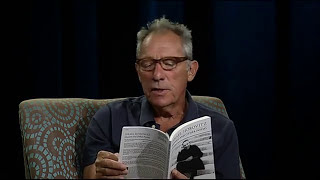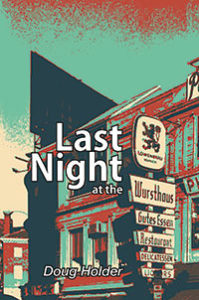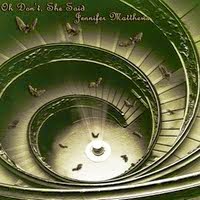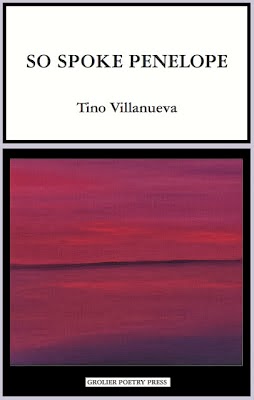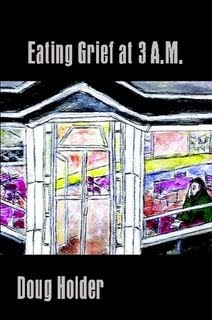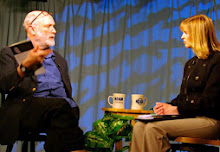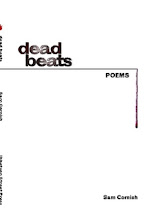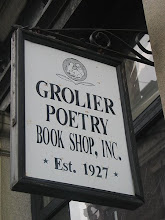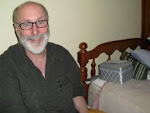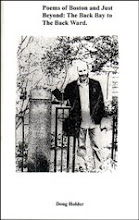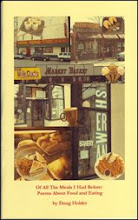
Rocks Stars and Bad Poetry: Interview with Steve Almond
by Cam Terwilliger
Steve Almond’s prose walks a tightrope between irreverent humor and deeply felt sorrow. Half the time, Almond’s readers bust a gut laughing. The other half, he breaks their hearts. The author of two story collections, a novel, and three books of nonfiction, his newest, “Rock and Roll Will Save Your Life”, offers Almond’s take on the experience of rock and roll “drooling fandom.” Meanwhile, his recently self-published works, "Letters from People Who Hate Me" and "This Won’t Take But a Minute Honey", have not only received sterling reviews from readers, but have also caught attention for his grass roots method of distributing them. Fortunately for me, I had a chance to talk with Almond about some of these things this week. Fortunately for you, you can catch him for yourself on Nov. 13 at The Somerville News Writer’s Festival.
CT: I’m excited to hear you’ll be featured in The Somerville News Writers Festival next month. Can you tell us a little about what you’ll be reading?
SA: Yeah, not sure exactly. But the work will probably come from these little DIY books I've been making. The new one is called “Bad Poetry”, and with any luck it'll be out in time for me to bring some to the festival.
CT: This spring, when I heard you read from the new book, "Rock and Roll Will Save Your Life", I was happily stunned not only by a great reading, but also a slick PowerPoint, accompanying music, and a performance by a rocking band afterward. Do you have any philosophy when it comes to performing your work? Do you take any inspiration from the rock stars you admire?
SA: I take plenty of inspiration from rock stars. I worship and shamefully covet them. And obviously, with a book about music, it made sense to have a soundtrack for those readings. But I do think there's a danger to jazzing up the readings, which is that the performance begins to overshadow, or obscure, the prose. My interest, when I'm reading, is to get people excited about the language, to make them realize that literature is not some esoteric pursuit, but the ravings of mad men and women. So I want people to have a good time and party like it's 1999. But I want them to leave the reading excited by what words can do, not the bells and whistles around them. Does that make sense?
CT: Your self published books, “This Won’t Take But A Minute Honey” and “Letters from People Who Hate Me”, have been popular sellers at The Harvard Book Store. But you’ve also written about how these books are intended to be “artifacts,” available mainly at readings. Can you tell us about your recent experience of distributing books in this do-it-yourself fashion?
SA: Oh it's just been a delight. That's why I keep making new ones. It's such a nice way to combat the prevailing late-model-capitalist-vertical-integration-media-platform nonsense. I just head out and do readings and if people want the books they come up and give me a little cash and I give them the book. It's a lot like a drug deal. As much as I appreciate the help I've received from traditional publishers, selling directly to readers is a much more personal and organic a way of putting art into the world. And I get to work with an amazing visual artist (Brian Stauffer). And I get to put whatever I want in the book. There's no executive to say: You can't do that! Of course, there's a lot of schlepping involved. And some low-level humiliation. But that's the life of a writer anyway these days.
CT: You recently concluded your web feature on “The Rumpus”, “Bad Poetry Corner,” where you revisited some wretched poems you’d written as a less experienced writer, some of which, for better or worse, had their sordid origins right here in Somerville. How was it to return to that work? Cathartic? Were there any pockets of unexpected embarrassment?
SA: The whole point was to get to the pockets of unexpected embarrassment. All the terrible language I was flinging at the page, hoping some poor misguided English major would sleep with me. But, you know, a big part of how writers get better is that they just get tired of their bad decisions and start making better decisions. So I'm happy to wallow in the wretchedness of those Somerville years, and to remember how awesomely lonely and hopeless and vulnerable I was. (Also: I live about a hundred yards away from Somerville, so I'm still honorary!!!)
CT: Part of “Bad Poetry Corner” allowed people to submit their own bad poems. How was the response by readers? And what do you think we stand to gain as writers by spending time with our failed attempts?
SA: Like I say, part of getting better is confronting your suckassitude. But I have to say that I never got as many bad poems as I thought I would. Not everyone is such a jolly self-mortifier, I guess.
CT: As a former Somerville resident, how do you feel about the literary scene here? Any fond memories of your time in the city? Any favorite places to write, or dependable spots for inspiration?
SA: I moved to Boston, basically, because I found this amazing apartment in Somerville. It was one of those great old houses, built in the 1870s, I think, by a Senator. I lived on the first floor and had a big sun room where I wrote. Or sat around not writing. In a way, Somerville is more of a mood to me, a kind of yearning loneliness, a desperate desire to connect, to make sense of my life and the abundant sorrows of the world. The country moved in a really dark direction while I was in Somerville, and a lot of my work has been about trying to make sense of that, the cruel delusions of our diseased hearts.
###





